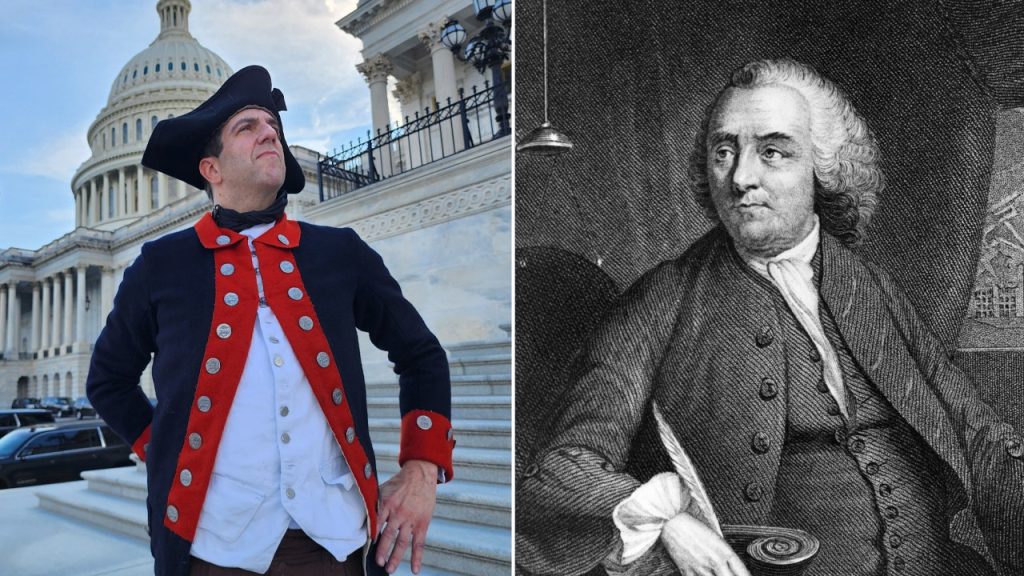In his new book, A.J. Jacobs recounts his experience living like the Founding Fathers for a year to gain insight into America’s past and present. Embracing the lifestyle of early America, complete with quill pens, muskets, and candles, Jacobs delves into the principles that shaped the country’s foundation. As a fan of Benjamin Franklin, Jacobs admires the Founding Father’s commitment to civil discourse. Franklin, known for his social club called the Junto, encouraged in-depth conversations about self-improvement and the betterment of the country, emphasizing a “spirit of inquiry” over argumentation.
One way Jacobs sought to uphold the ideals of civil discourse was by hosting an 18th-century-style dinner party, reminiscent of gatherings from the past. Gathering a diverse group of guests representing various political views, Jacobs facilitated a discussion about the Constitution and the future of America. By approaching the conversation as a collaborative effort to solve a shared puzzle, the dinner guests engaged in a civil and thoughtful exchange, focusing on understanding each other’s beliefs and perspectives. Despite differing opinions, the guests agreed on the need for more face-to-face discussions outside of personal bubbles.
Drawing inspiration from historical figures like Ben Franklin and Alexander Hamilton, Jacobs advocates for a more tolerant and respectful approach to political discourse. Rather than asserting one’s views as indisputable truths, he suggests adopting a more humble and open-minded attitude, acknowledging the possibility of differing opinions and the value of diverse perspectives. Reflecting on Franklin’s humorous parable about the fallibility of individual perspectives, Jacobs emphasizes the importance of engaging in civil discourse with people from all walks of life, recognizing the limitations of one’s own understanding.
As the United States approaches its 250th anniversary, Jacobs believes that fostering a spirit of inquiry and promoting thoughtful dialogue are essential for the country’s future. Encouraging more listening and fewer confrontational social media posts, he urges Americans to engage in meaningful conversations that bridge political divides and promote understanding. Recognizing the value of diverse viewpoints and the benefits of respectful discussion, Jacobs highlights the need for genuine communication and cooperation in navigating complex issues facing society.
In a time of heightened political polarization and increasing divisiveness, Jacobs’ exploration of the Founding Fathers’ commitment to civil discourse serves as a timely reminder of the importance of respectful dialogue and mutual understanding. By embracing the principles of inquiry, humility, and engagement with diverse perspectives, Jacobs advocates for a more inclusive and constructive approach to political conversations. Encouraging Americans to step outside their comfort zones and engage in meaningful exchanges with individuals holding different viewpoints, Jacobs offers a pathway towards fostering unity and cooperation in a time of discord.
As he continues to share the lessons learned from his year of living constitutionally, Jacobs hopes to inspire others to embrace the values of civil discourse and open-mindedness. By following the example of the Founding Fathers and striving for respectful dialogue with individuals of varying backgrounds and beliefs, Jacobs envisions a future where conversations are characterized by understanding, cooperation, and a shared commitment to the common good. In a society marked by division and hostility, Jacobs’ journey serves as a beacon of hope for a more harmonious and inclusive future for all Americans.













